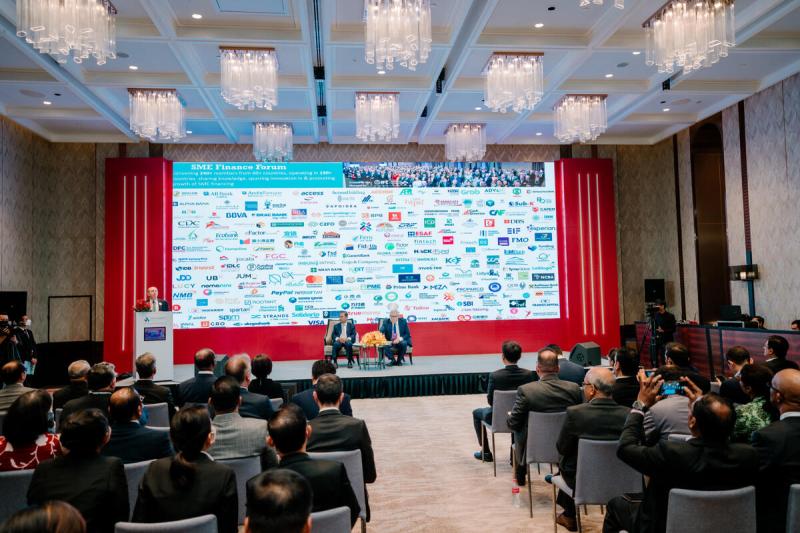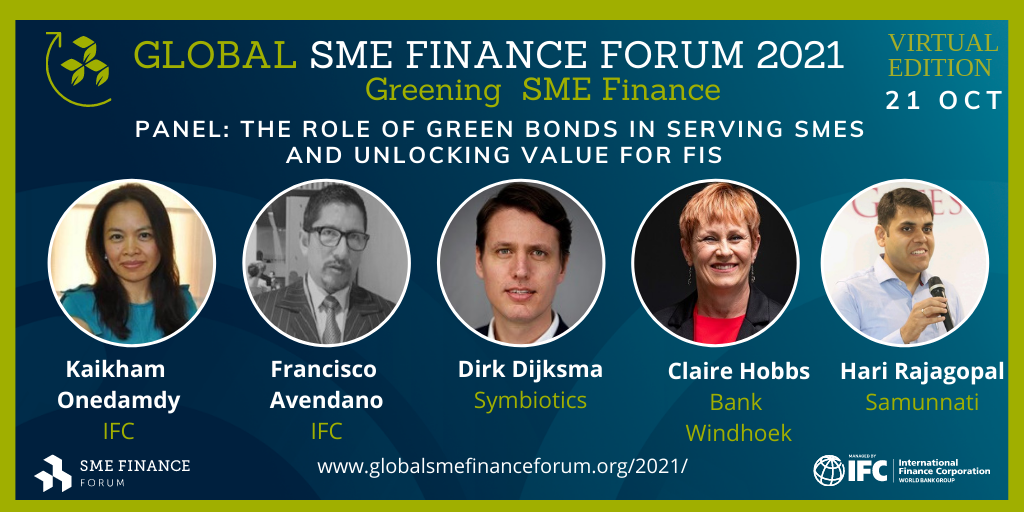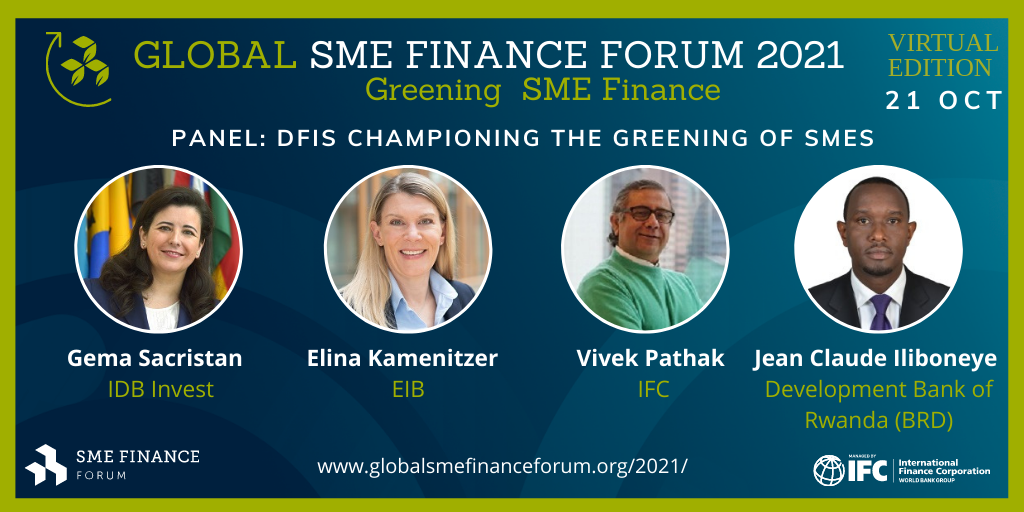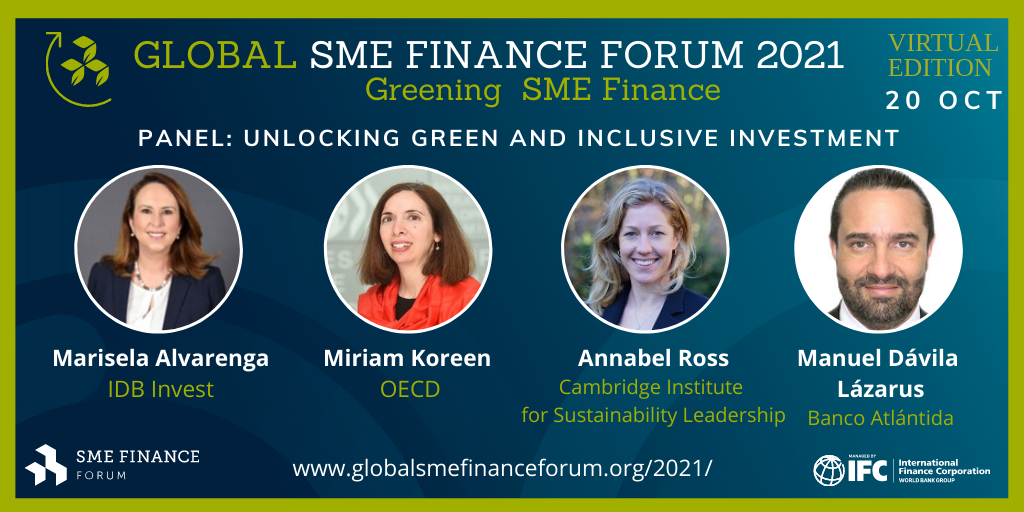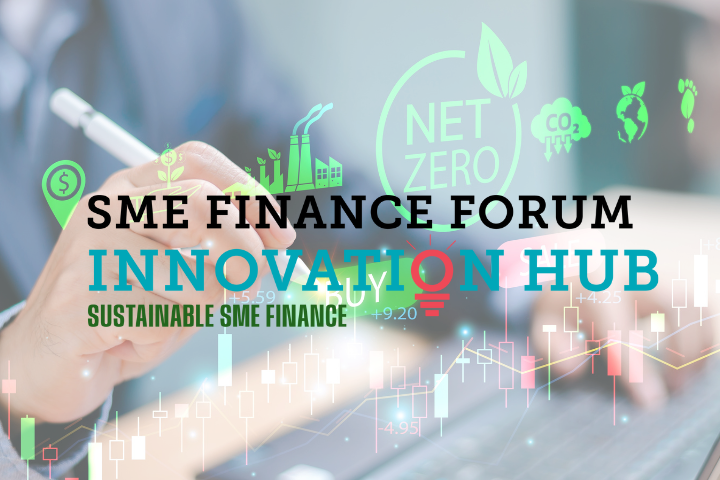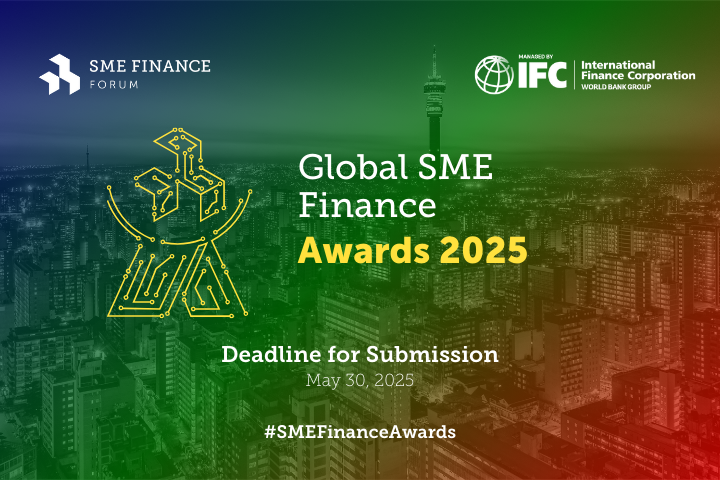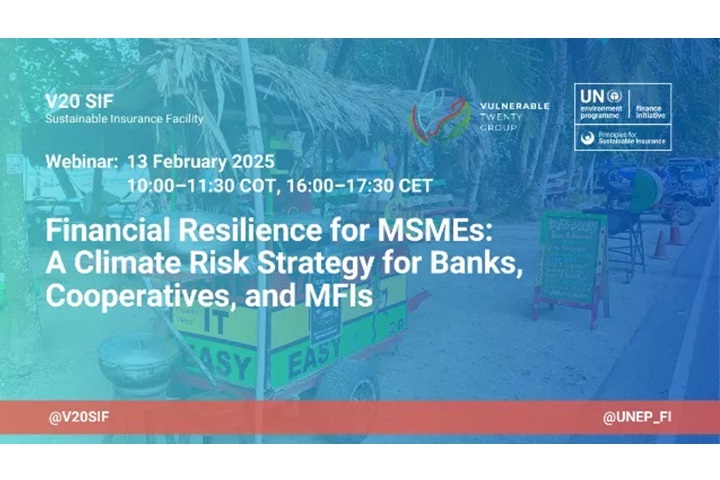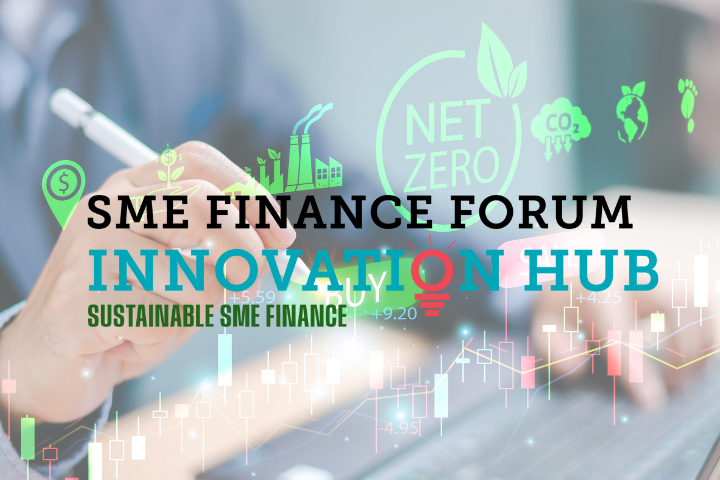Host
Wiebke Schloemer, Regional Director for Europe, International Finance Corporation (IFC)
Speaker
Rodion Morozov, Deputy Chairman of the Management Board, UKRGASBANK
Key takeaways
-
Ukrgasbank’s transformation started in 2015 and it is now a leader in sustainable banking in Ukraine. Other local banks are following the trend
-
In 2011, the total capacity of renewable energy was 150 megawatts in 2011. It has now doubled.
-
They faced challenges when they decided to center their business on green finance: lack of local green expertise. They looked for international partners and started working with the IFC (advisory services)
-
Their choice paid off: they moved from being the 17th bank in 2015 in the country to the 4th bank in Ukraine and 30% of their portfolio is green.
Impact of climate change on SMEs
-
job losses, business closure, increased price on energy, natural disasters
-
650 green loans provided already for a value of 1.2 billion USD
What is the recipe to make green finance work for small SMEs?
-
Slightly reduced interest rate on green loans
-
Promotion/PR of green lending
-
Local government support
-
Also offer training to get SMEs on board
What could gov do to accelerate green finance for SMEs?
-
SMEs can’t spend a lot of money on consultant, they need different solutions offering both financial product and advice.
-
Role of regulators: greening standard should be applied to all banks.
-
Help from DFIs is welcome to ease access to finance
Impact of Covid on portfolio
-
More loans to SMEs during the pandemic thanks to the affordable loans promoted by the government
Word of Wisdom
‘UKRGASBANK is among the first banks and very few banks in Ukraine to implement the environmental and social risk management system. And I think it's time to create equal game roles for all banks. We need considerable long-term and cheaper funds.” Rodion Morozov, Deputy Chairman of the Management Board at Ukrgasbank.



